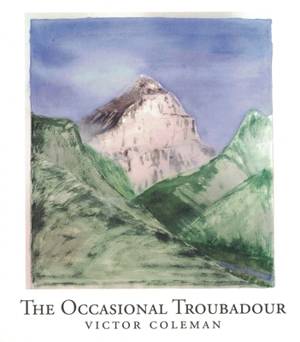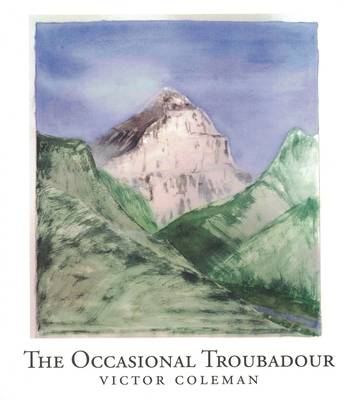
- Afhalen na 1 uur in een winkel met voorraad
- Gratis thuislevering in België vanaf € 30
- Ruim aanbod met 7 miljoen producten
- Afhalen na 1 uur in een winkel met voorraad
- Gratis thuislevering in België vanaf € 30
- Ruim aanbod met 7 miljoen producten
Zoeken
Omschrijving
The Occasional Troubadour is a series of 52 portraits of friends, acquaintances, and cultural favourites generated by applying the mesostic form to a late nineteenth century English text (in two volumes) by Justin Harvey Smith: The Troubadours at Home, Their lives and personalities, their songs and their world (G.P. Putnam's Sons, New York & London, The Knickerbocker Press, 1898-99). Readers of the late, great American composer/writer John Cage will be familiar with the mesostic form. Readers of Victor Coleman's 1972 book, AMERICA, will probably have registered that it contains a series of poems which are both acrostic and telestich. The poems in The Occasional Troubadour are "occasional" poems, because the initial composition was written for the 60th birthday of one of Coleman's oldest friends and Coach House colleague, photographer/writer David Hlynsky. This book is a departure from Coleman's LETTER DROP trilogy in that these poems are in no way lipogrammatic, although he does consider it to be an extension of his OuLiPo practice.
Specificaties
Betrokkenen
- Auteur(s):
- Illustrator(s):
- Uitgeverij:
Inhoud
- Aantal bladzijden:
- 96
- Taal:
- Engels
Eigenschappen
- Productcode (EAN):
- 9781897388686
- Verschijningsdatum:
- 1/11/2010
- Uitvoering:
- Paperback
- Formaat:
- Trade paperback (VS)
- Afmetingen:
- 140 mm x 216 mm
- Gewicht:
- 113 g

Alleen bij Standaard Boekhandel
+ 53 punten op je klantenkaart van Standaard Boekhandel
Beoordelingen
We publiceren alleen reviews die voldoen aan de voorwaarden voor reviews. Bekijk onze voorwaarden voor reviews.











